Perimenopause: Dealing with services in NI an 'uphill struggle'
- Published
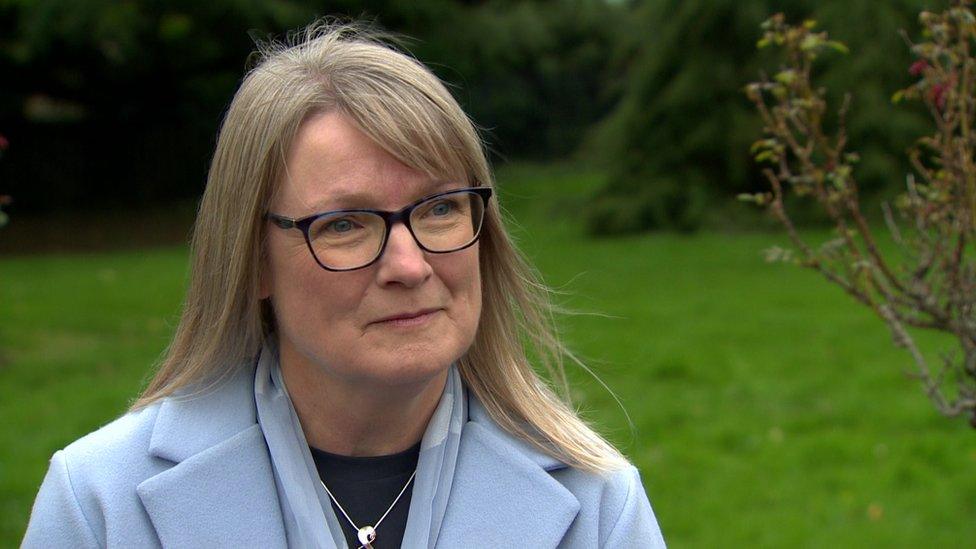
Lisa Copeland had to do her own research on the issue
Navigating perimenopause services in Northern Ireland is an "uphill struggle" for some women, a campaigner has said.
Lisa Copeland first experienced symptoms of the condition in her late 40s.
Doctors and campaigners have called for a dedicated women's health strategy for Northern Ireland.
"No-one had ever mentioned to me that there was such a thing as perimenopause," she told BBC News NI.
"I had to do my own research, get my own help and finally get the HRT I needed."
The creation of specialist menopause clinics is one of a number of pledges made by governments in the rest of the UK and Ireland as part of a dedicated women's health strategy.
Northern Ireland's Chief Nursing Officer was among those backing calls for a similar plan to be rolled out here.
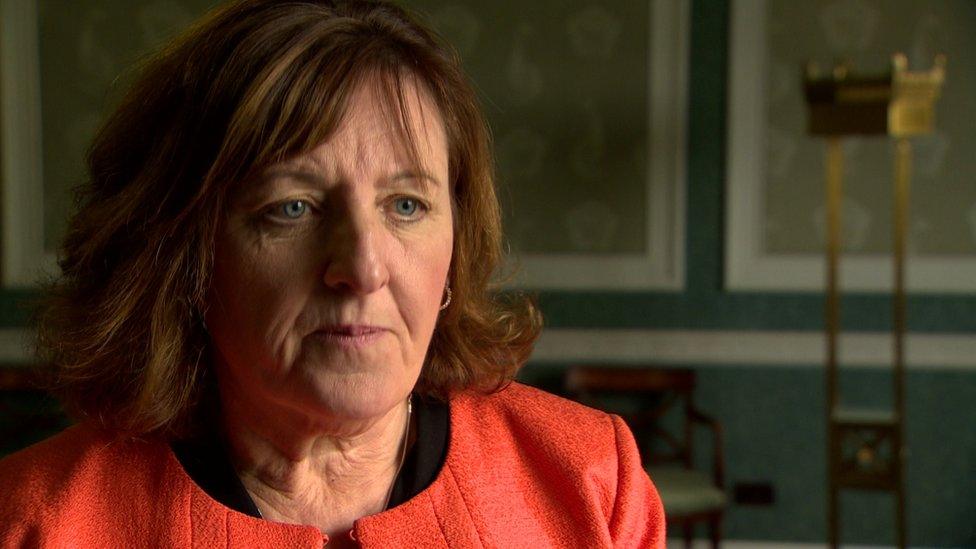
Northern Ireland's Chief Nursing Officer Maria McIlgorm says the strategy should build on ongoing work
Maria McIlgorm said while she was "fully supportive", any future strategy should build on the "good work happening here around women's health issues".
'I had to stop work, I've lost friends'
Tracey Kearns also experienced premature menopause and said the past decade had been "horrendous".
Speaking to BBC News NI, she described suffering multiple fractures over the years before eventually being diagnosed with osteopenia which was connected to perimenopause.
Tracey said there was "limited" support and information available to women.
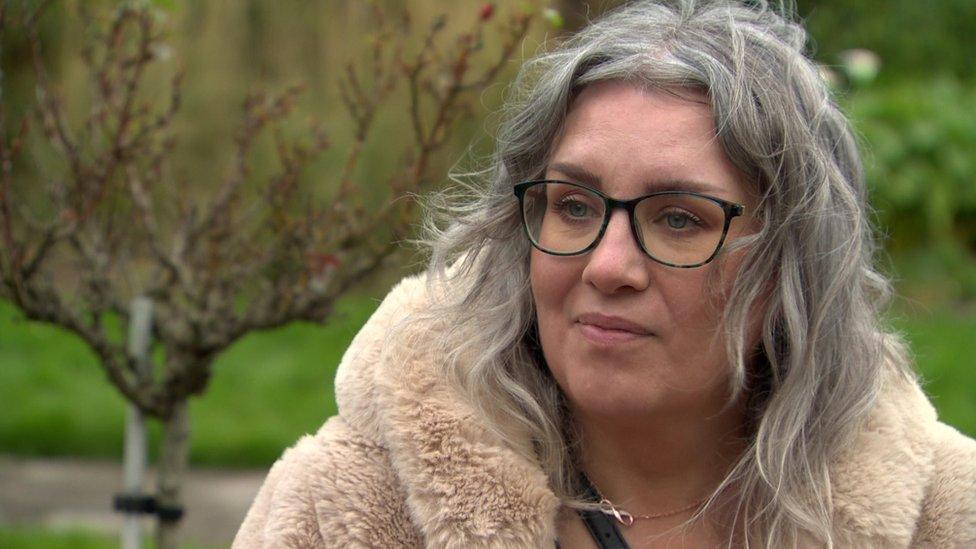
Tracey Kearns says the past decade has been "horrendous"
"I had to stop work, I've lost friends, it's impacted my family and I've isolated myself from my community.
"There was no connection ever made that what I was going through was related to perimenopause," she said.
Northern Ireland is now the only part of the UK and Ireland without plans to introduce a dedicated women's health strategy.
It is something health consultants, campaigners, patients and politicians have said would help focus minds and budgets.
Among those supporting an event at Stormont on Tuesday were the Head of the Northern Ireland Civil Service, Jayne Brady and Northern Ireland's former Chief Nursing Officer, Charlotte McCardle, who is leading on England's women's health strategy.
Dr Ursula Mason from the Royal College of GPs Northern Ireland said they "absolutely" supported the call.
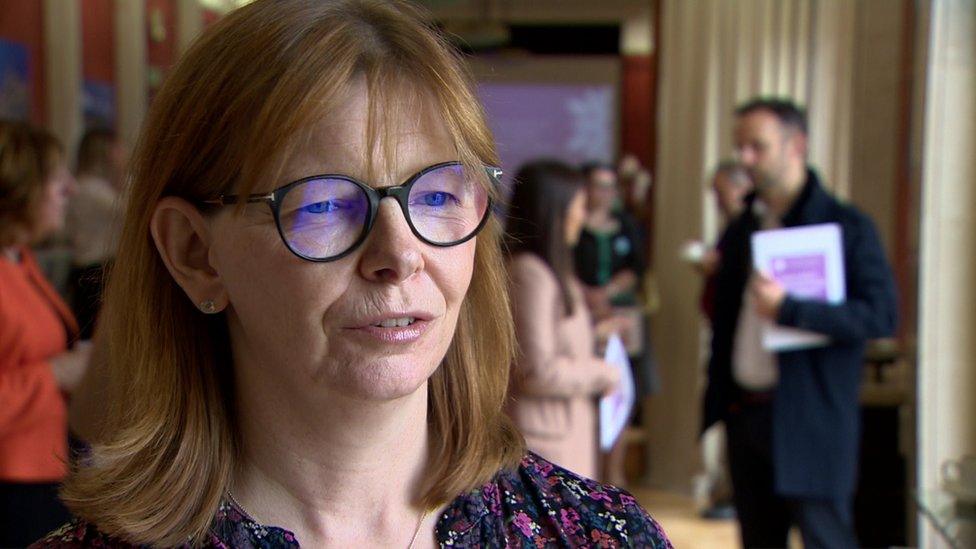
Dr Ursula Mason says any strategy must be "fully resourced and fully funded"
"Anything that shines a light on women's health and the need to actually prioritise that is hugely important, but it has to come with the proviso that it's fully resourced, fully funded, fully supported from all sectors," she said.
In England, new doctors will be given mandatory training to better treat female medical conditions, free access to NHS fertility treatment is to be expanded and more funding has been pledged for mobile breast cancer screening.
While in the Republic of Ireland, the government says it will expand free contraception to women aged 17-25, open specialist gynaecology, menopause and fertility clinics, and embed perinatal mental health services in every maternity unit.
The Scottish Government was the first to launch its own Women's Health Strategy in 2021.
In Wales, work has begun with foundational plans for a similar strategy already underway.
Women are 'left behind'
Dr Siobhan Kirk, one of only two recognised menopause experts in Northern Ireland, said a dedicated strategy was "urgently needed".
"We need to educate and inform to improve reproductive health, enable women to choose if, and when they want a pregnancy, provide safe maternity care, optimise gynaecological health, improve access to contraception, abortion and menopause care", she said.
"Recent issues with cervical screening and pelvic mesh show women are left behind.
"Women have many specific health needs that don't affect men," she added.
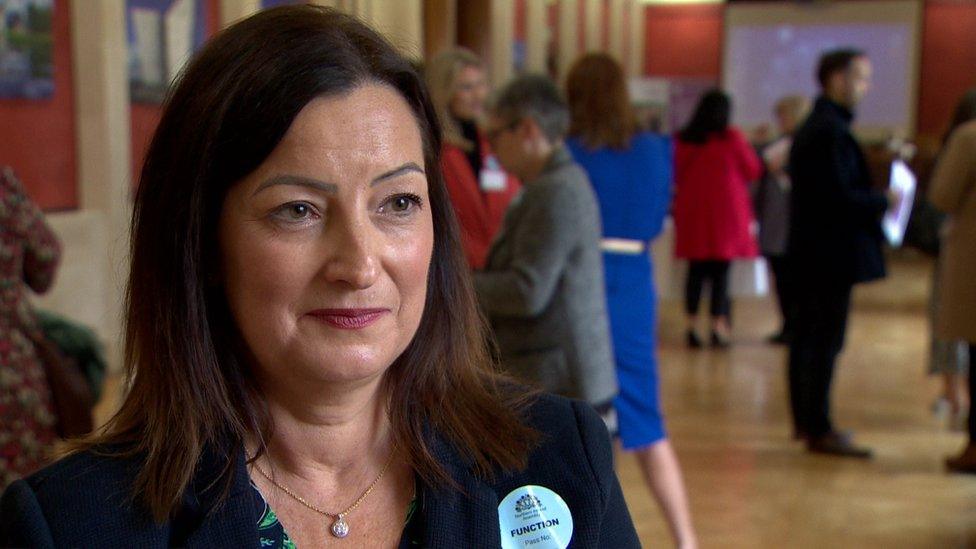
Dr Siobhan Kirk is one of only two recognised menopause experts in Northern Ireland
The call comes at a time when there is no government at Stormont, but a newly formed menopause charity said they were ready to start preparing the groundwork.
Menopause Together chairperson, Fiona Brown, said women needed "accurate, timely information and support" to manage the impact of the condition, but that this is not happening due to "a lack of a cohesive Women's Health Strategy and recent reductions in funding".
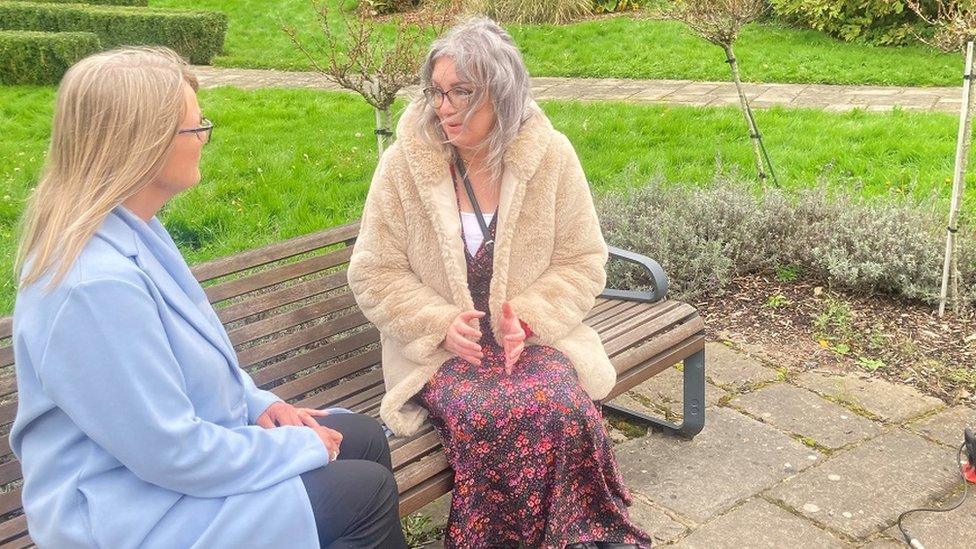
Lisa and Tracey discuss their experiences
Lisa Copeland is now receiving treatment, but said her own experience could have been avoided.
"It's been a truly shocking journey that overall I've had to do all of this myself, that women are not properly informed for the years of their reproductive and post-reproductive life.
"With a menopause advice service, I wouldn't have had to suffer all those years".
Related topics
- Published7 November 2024
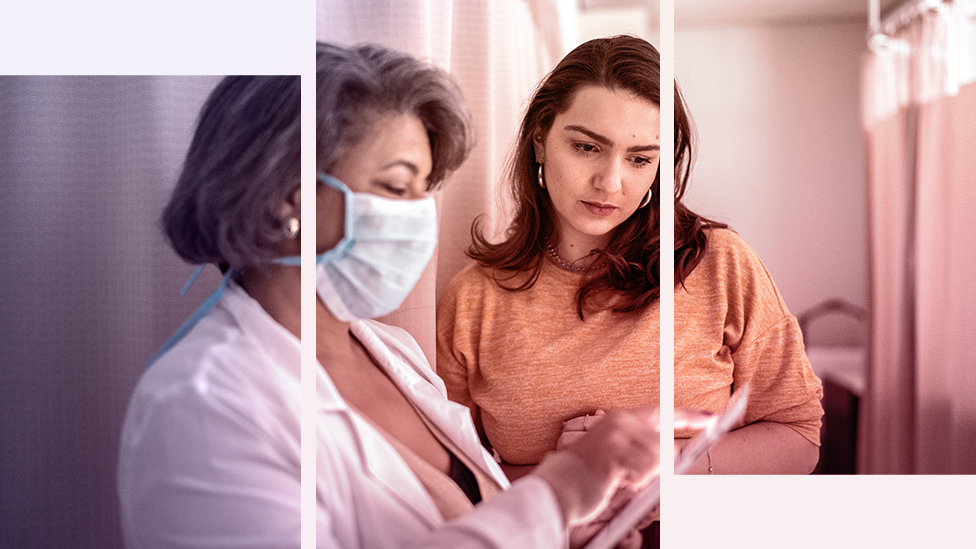
- Published20 July 2022
